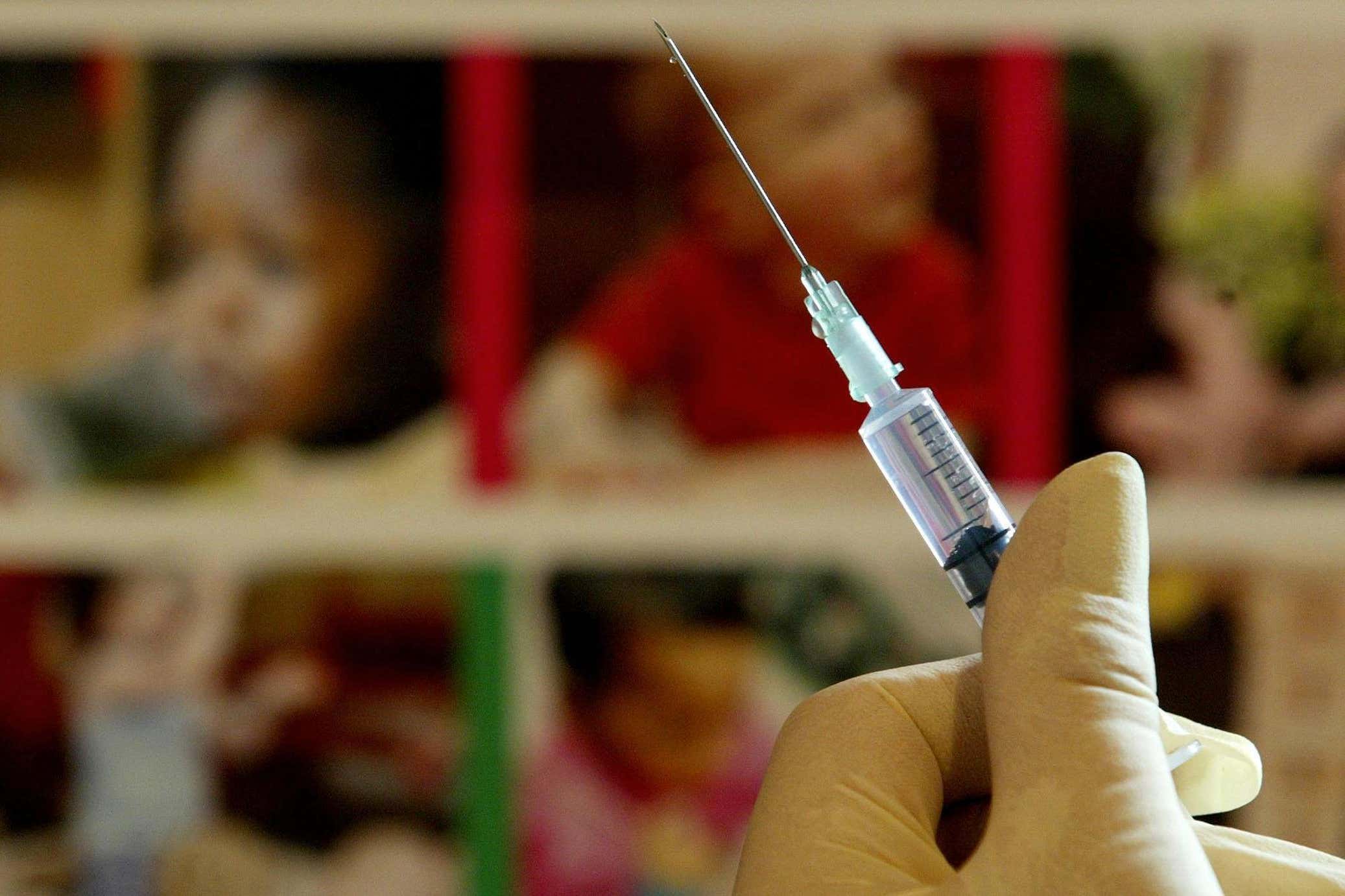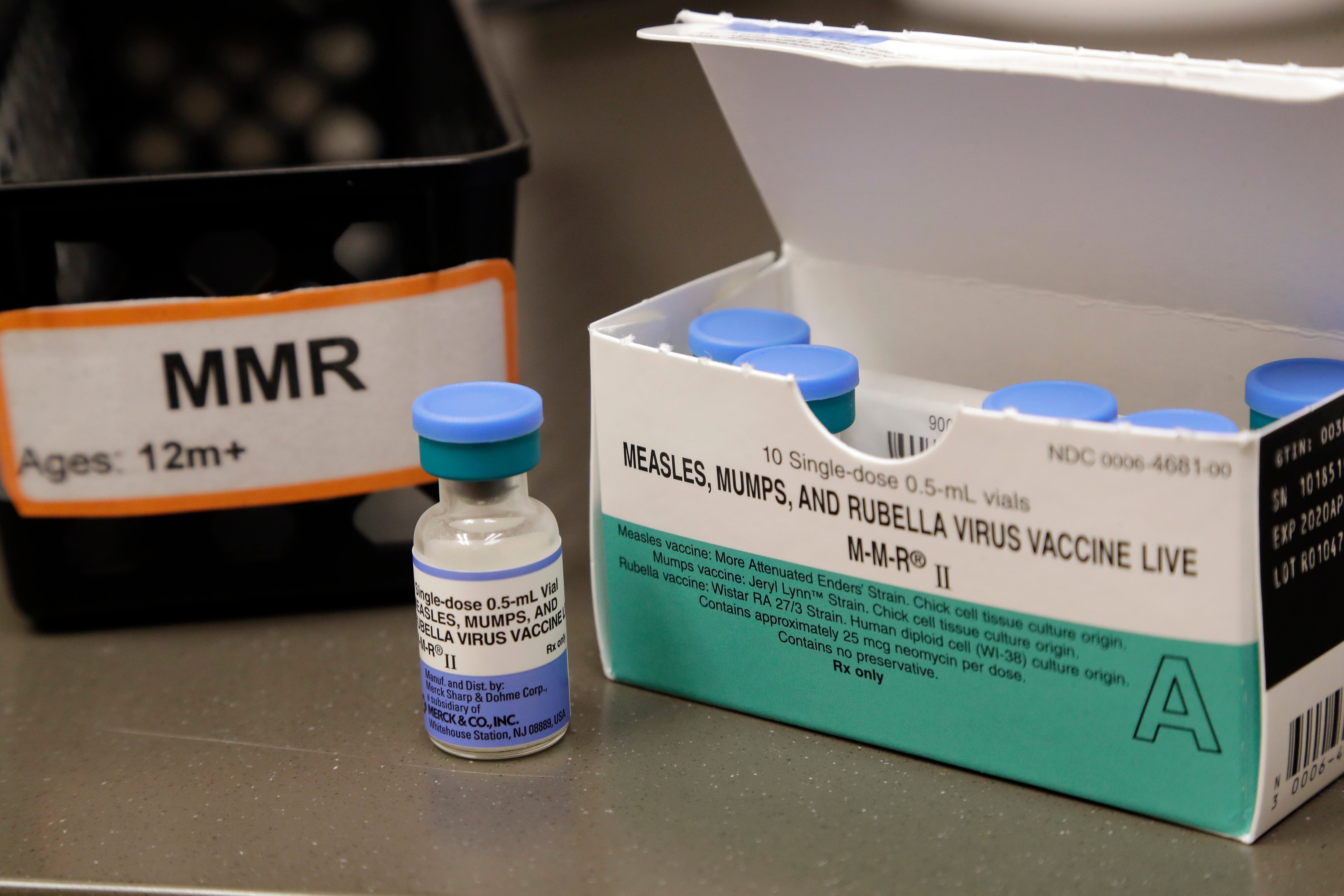Scientists fear ‘tinder box effect’ could spread measles in under-vaccinated London
Helen Bedford, a professor of children’s health at University College London, has said vaccine uptake needs to be higher to contain such diseases

People rejecting vaccinations could be one of the reasons behind why London is at reported risk of a major measles outbreak, an expert has said.
The UK Health Security Agency warned earlier in July that the capital could be on course for a wave of 40,000 and 160,0000 cases with dozens potentially dying.
After further consideration, Helen Bedford, a professor of children’s health at University College London, has said vaccine uptake needs to be higher to contain such diseases.
“In this country we have very high uptake of vaccination but even so, it’s not high enough to really control certain diseases,” she told The Naked Scientist on Monday.
“And measles is in particular a problem because it is very, very, very infectious. And to keep measles away completely, you have to have really high levels of vaccine uptake, which we simply don’t have in this country.”
She said that “really high” would be an uptake of 95 per cent and that the UK was currently at around 89.5 per cent of children who have had one dose of the MMR (measles, mumps and rubella) vaccine at two years old.
However, in London the rate is even lower at 82 per cent - and Hackney borough has among the lowest rates in the country with a 65 per cent uptake.
Ms Bedford said there was potential for a “tinder box effect” with the disease spreading between unvaccinated people.

“What we’re really worried about is when you get an outbreak, you tend to get more cases amongst under vaccinated communities,” she added.
“We know who those communities are, people who reject vaccination, people who move around. So in London there’s a lot of population mobility, people who’ve recently come into the country. And then there’ll be certain communities with particular cultural views, travelling communities, those sorts of communities at particular risk of measles outbreaks.”
The MMR vaccine can be given to people of any age and Ms Bedford said it is “not too late” for anyone to come forward with GPs being able to easily administer the jab. She said that spreading the word to parents can be key as a reminder. In the past, the NHS has advertised the importance of the inoculation in community centres and also on buses.
“Childhood diseases like measles, they’re really, really nasty when you are a baby,” she said, “But they can also be extremely nasty when you’re an adult and you often have very high rates of people with measles going into hospital when they’re adults.
“For the first six months of this year, we’ve seen 128 cases. It’s already far more than we had in the whole of last year. Most of the cases are in young children under the age of 10 years.
“Fortunately, we can stop this outbreak in its tracks if we can improve vaccine uptake and if we can encourage people that haven’t been vaccinated to take the vaccine up.”
Join our commenting forum
Join thought-provoking conversations, follow other Independent readers and see their replies
Comments


Bookmark popover
Removed from bookmarks